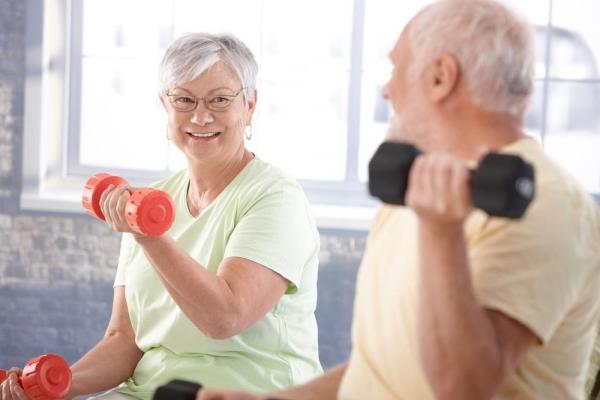
They say laughter is the best medicine, and researchers say incorporating intentional laughter into exercise programs increases their health benefit for older adults.
Simulated laughter techniques added to a strength, balance and flexibility workout improved older adults’ performance in an exercise program and significantly improved their enjoyment, making it more likely they would participate in physical activity and classes more often, report researchers at Georgia State University.
Laughter has physical benefits, and in many cases has an effect on the muscles used during exercise programs designed for older adults, the researchers say.
While the U.S. Department of Health and Human Services recommends at least 30 minutes of physical activity five days a week, many older adults find participating difficult or not enjoyable.
Forced laughter — choosing to laugh, rather than as a response to something funny — gave way to actual laughter and enjoyment for most participants in the classes with laughing incorporated into physical exercises, most likely making exercise programs more effective, the researchers say.
“We want to help older adults have a positive experience with exercise, so we developed a physical activity program that specifically targets exercise enjoyment through laughter,” Celeste Greene, a researcher at Georgia State University’s Gerontology Institute and lead author of the study, said in a press release. “Laughter is an enjoyable activity and it carries with it so many health benefits, so we incorporated intentional laughter into this program to put the fun in fitness for older adults.”
For the study, published in the journal The Gerontologist, the researchers added laughter exercises to a moderate-intensity strength, balance and flexibility, employing a program called Laugh Active at four assisted living facilities.
During the six-week study, participants attended two 45-minute exercise sessions per week that included eight to 10 laughter exercises lasting 30 to 60 seconds each.
Participants experienced improvement in mental health, aerobic endurance and outcome expectation for exercise, with 96.2 percent of participants saying laughter made exercise more enjoyable, 88.9 percent saying it made exercise more accessible and 89.9 percent saying it would motivate them to participate in more exercise classes or activities.
“The combination of laughter and exercise may influence older adults to begin exercising and to stick with the program,” Greene said.
[Source:-UPI]







